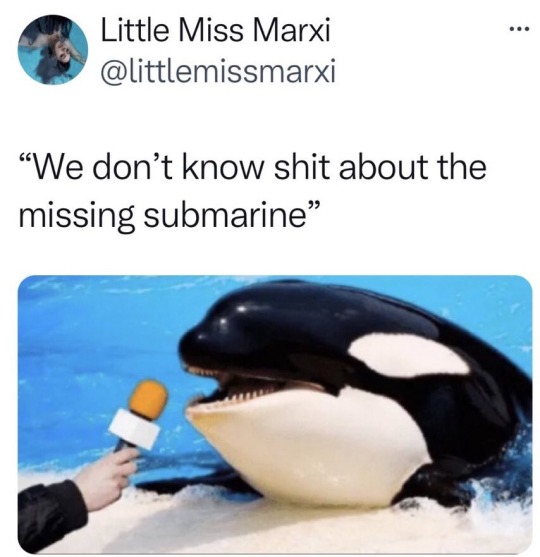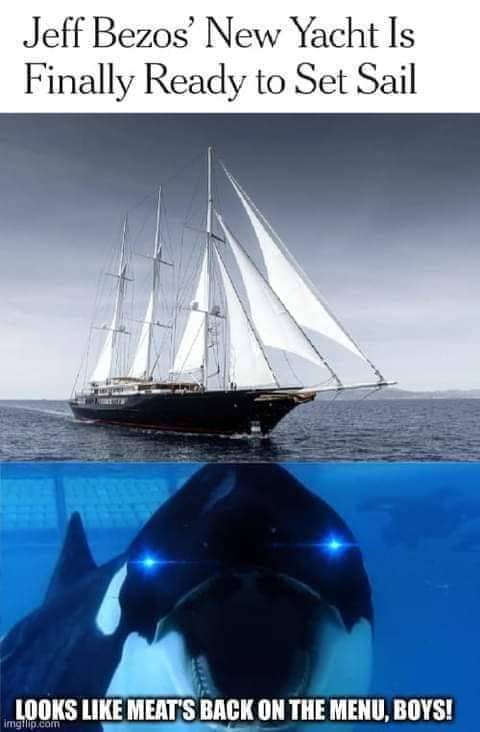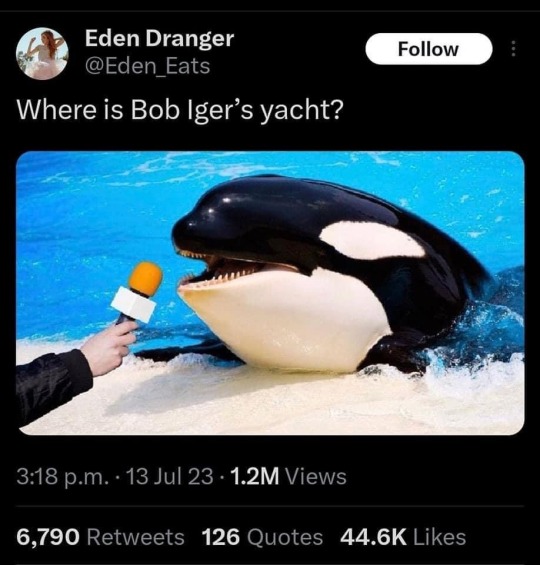#killer whales
Explore tagged Tumblr posts
Text
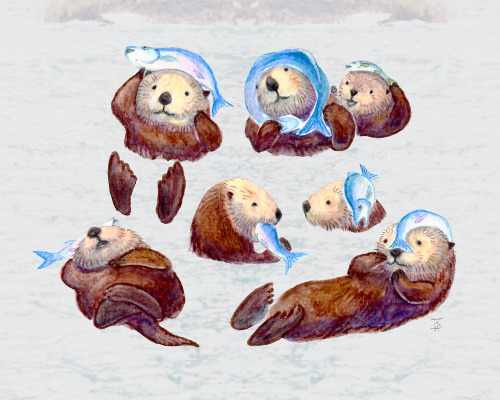
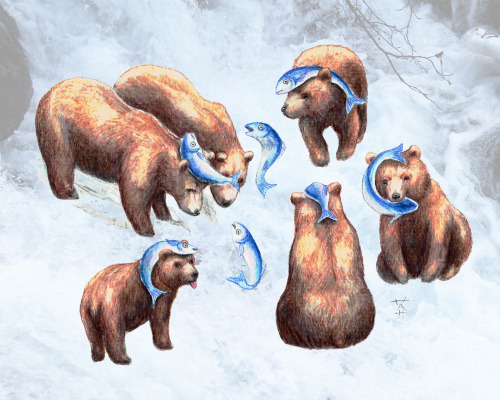


Salmon hats: sweeping the nation by storm watercolor on paper, digitally overlaid on photo
#watercolor illustration#dead salmon hats#orcas#killer whales#sea otters#grizzly bears#brown bears#women want me fish fear me
6K notes
·
View notes
Text
Learning anything about marine mammal training will make you re-evaluate so much of your relationship with your own pets. There is so much force involved in the way we handle domestic animals. Most of it isn’t even intentional, it just stems from impatience. I’m guilty of it myself!
But with the exception of certain veterinary settings where the animal’s health is the immediate priority, why is it so important to us that animals do exactly what we want exactly when we want it? Why do we have to invent all these tools and contraptions to force them to behave?
When a whale swam away from a session, that was that. The trainer just waited for them to decide to come back. If they flat out refused to participate in behaviors, they still got their allotment of fish. Nothing bad happened. Not even when 20-30 people were assembled for a procedure, and the whale chose not to enter the medical pool. No big deal. Their choice and comfort were prioritized over human convenience.
It’s almost shocking to return to domestic animal medicine afterwards and watch owners use shock collars and chokers and whips to control their animals. It’s no wonder that positive reinforcement was pioneered by marine mammal trainers. When you literally can’t force an animal to do what you want, it changes your entire perspective.
I want to see that mindset extended to our domestic animals.
#‘oh I can walk my dog off-leash down a crowded street’ why does that matter?????#the horse world is ESPECIALLY bad about this too#edit: the whips is referring to horses I have not seen anyone whip their dog#pets#horses#animal training#dog training#dolphin training#dolphins#belugas#orcas#killer whales#cetaceans#marine mammals#zoos#aquariums#cooperative care#vet med#vetblr
5K notes
·
View notes
Text

An early Christmas gift arrived a few days ago. SEATTLE — A young female J pod orca calf recently spotted by the Center for Whale Research (CWR) in Puget Sound has now been confirmed by the organization to be the offspring of Tahlequah, the whale who carried her dead calf for at least 17 days and 1,000 miles in 2018.
The calf, designated as J61, was first seen traveling with the Southern Resident killer whale J pod on Friday.
#killer whale#orcas#orca#killer whales#cetaceans#ocean#cetacean#southern resident killer whales#southern residents#wild orcas#southern resident orcas#salish sea#center for whale research
231 notes
·
View notes
Text

Orcas, apex predators, do not see humans as prey and are often docile. No modern fatalities caused by wild orcas have been recorded.
260 notes
·
View notes
Text
Oh hell yes.
3K notes
·
View notes
Text
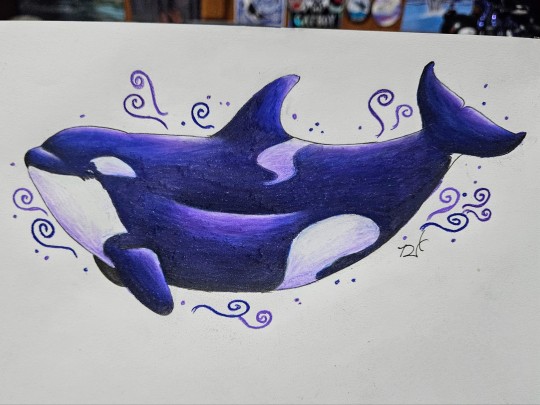
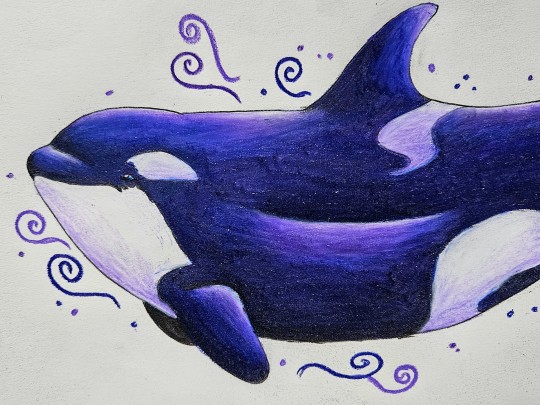
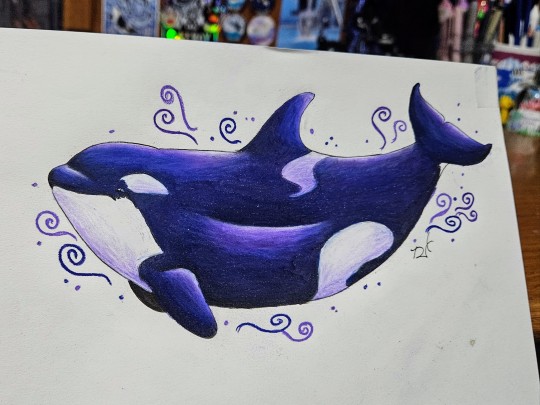
Tiktok is now officially banned for me, and I remembered abt my tumblr blog, so here's some orca art
#grims art#orca#orcas#orcinus#orcinus orca#killer whale#killer whales#ceta art#cetacean#cetaceans#whale#whales#dolphin#dolphins#blackfish#shamu#ocean#sea#marine life#marine animals#art#artistic#artist#artwork#artists on tumblr#draw#drawing#drawings#traditional drawing#traditional art
140 notes
·
View notes
Text
A pair of marine mammal scientists at The University of British Columbia, has found that claims that a lack of access to salmon is what is driving the crash in population numbers for southern resident killer whales of the Pacific are wrong. In their paper published on the open-access site PLOS ONE, Burak Saygili and Andrew Trites describe how they consulted with sport anglers and whale-watching crews to learn more about the orcas' access to chinook salmon. Prior research has shown that the southern resident killer whales of the Pacific are struggling. Not only are their numbers dwindling, but the number of offspring is dropping dramatically. And nobody knows why.
Continue Reading.
#southern resident killer whales#Killer Whales#Orcas#Cetaceans#Biology#Zoology#Salmon#zoology#stem#science
174 notes
·
View notes
Text
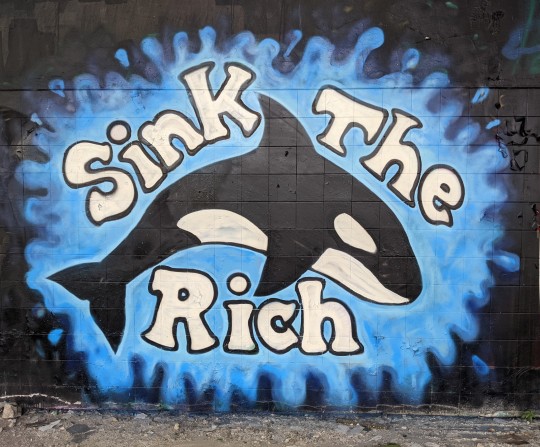
"Sink the Rich"
Seen in London
1K notes
·
View notes
Text
tumblr tuesday: team gladis
We're in the thrall of Gladis and her little terrors! Whether you believe they're annoyed at yachts because they want to play in the jetstreams of motorboat engines, or you believe they're taking back the ocean and nature is winning—we can probably all agree that the noble orca makes for excellent art. Luckily, your local Artists on Tumblr agree.
@artofsoul1999:
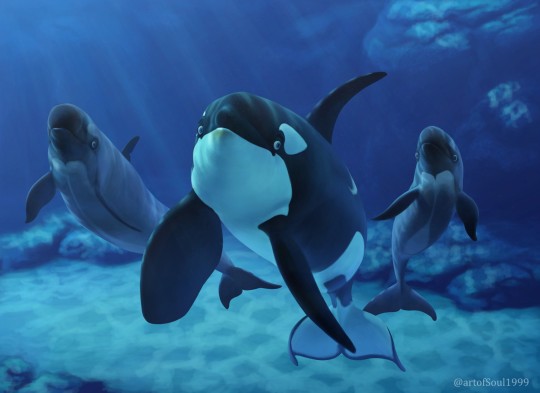
@livelaughlongsword:
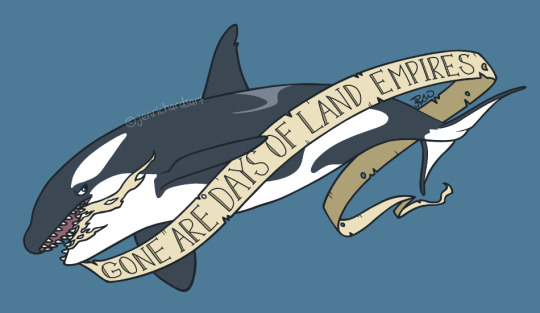
@natedraws:
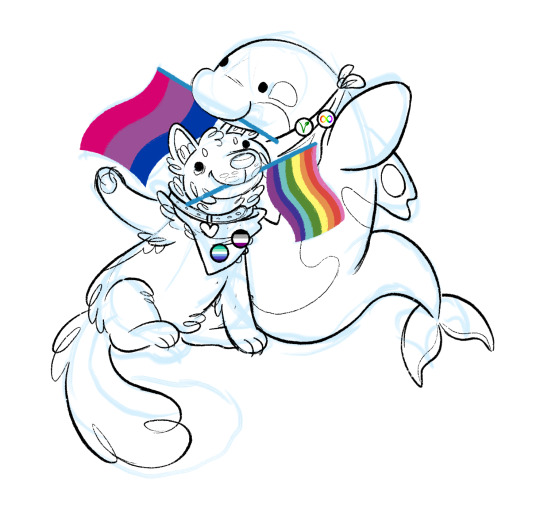
@aquatic-batt:
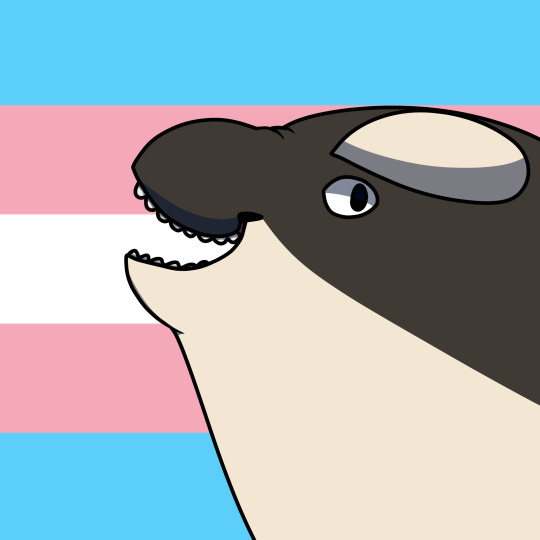
@mojavewastes:
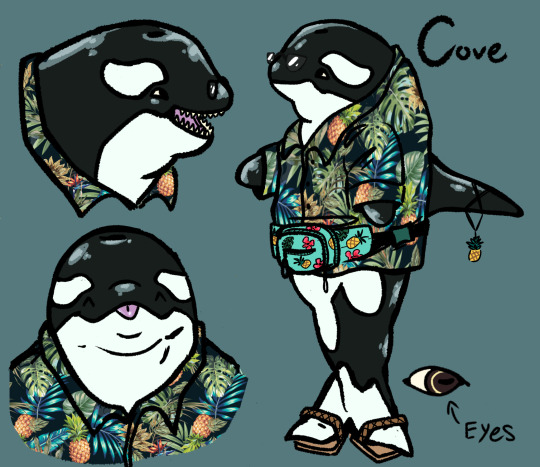
@calimariari:

@artsyaxolotl:
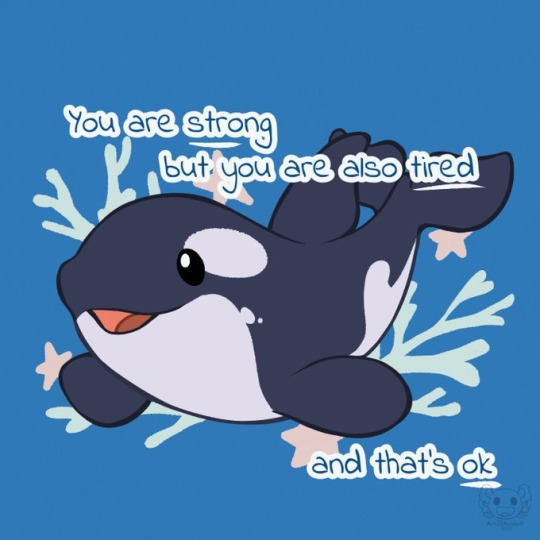
(bonus fun orca fact by @platypu here)
2K notes
·
View notes
Text

Like so many of us orca nerds in the 90s, I followed Keiko’s life closely. I still have a folder full of newspaper clippings from every stage of his rehabilitation journey, and recently rewatched an old documentary I used to have on repeat. It got me thinking about how special he was and I wanted to do a tribute, so: here he is surrounded by mountain avens, the national flower of Iceland, his original home.
266 notes
·
View notes
Text
Orcas hunting (wave washing) seals.
116 notes
·
View notes
Text

78 notes
·
View notes

